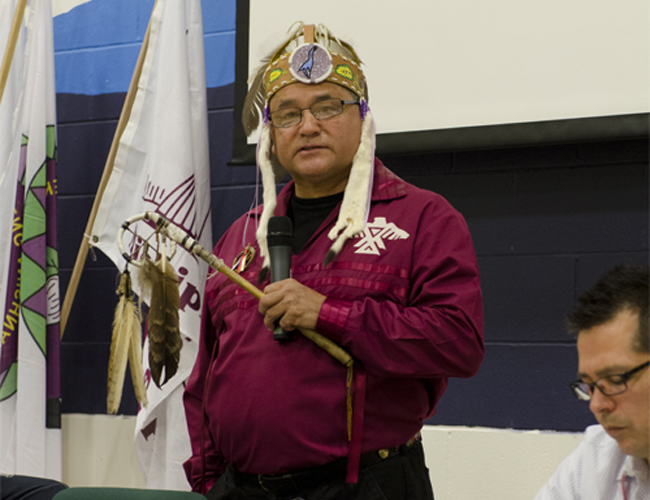Intentional mal-nutrition malpractice, just another part of Canada’s legacy

By Jody Kechego
A five-year old girl is held captive for ten years and deprived food, water and other basic necessities in an experiment to develop vitamin pills. The girl, now in her twenties, still suffers from post-traumatic disorders due to the repeated sexual assaults she endured while she was imprisoned by the government-funded agency. Her perpetrators have been identified but no charges are expected and a media blackout has been ordered due to the sensitive nature of the crimes committed.
Imagine if this were your daughter, your sister or your mother, how would one deal with such an injustice? Now imagine this happened to your entire family or worse yet, your entire community. Not in Canada you say? This is in fact the reality First Nations in Canada have been attempting to reconcile for several decades now. However, the lack of emotional connection to the victims allows most Canadians to develop a fictional idea that is the reality First Nation citizens deal with daily.
“When the story first broke that Canada was part of this experiment where First Nation children were treated like lab-rats in the interest of developing vitamin pills (and other profitable supplements), it was no surprise to me,” said Grand Council Chief Patrick Madahbee of the Anishinabek Nation. “What would be more surprising is if the mass-media paid attention and attempted to educate the public on the inhuman actions by its government.”
Many First Nation organizations have already come out and condemned the government for being a part of the scandal. The recently published research of Ian Mosby revealed that federal government researchers were commissioned to conduct experiments on starving First Nation children while the children were held captive at Canadian-run residential schools.
“Why do you think the federal government fought so hard to keep residential school files secure? Prime Minister Harper apologized to First Nations for a reason,” said the Grand Council Chief. “As we now know, five years later, that apology was nothing more than a public relations ploy to set the table for the Conservatives to continue on a colonial agenda and create the image that they were working for and with First Nations. Meanwhile they continue to push oppressive legislation on us and ignore our concerns – you don’t have to go to Africa to see evidence of apartheid”.
In 2007 Harper made a public apology to First Nation survivors of the Indian residential schools that operated in Canada from 1830-1996. Just this year, the federal government was court ordered to release its archival records on Indian residential schools to the Truth and Reconciliation Commission.
“We are used to injustice in Canada, but what’s more frustrating is when Canada points the finger back at us because we have a high rate of health and social challenges that our communities have to deal with daily,” said Madahbee. “I imagine the coverage would be different if it was towns and cities instead of reservations that were subjected to such disgraceful acts of injustice. Canadians don’t want to hear about these stories because they don’t want to be associated with the guilt – I’d trade the guilt for the trauma any day of the week.”


